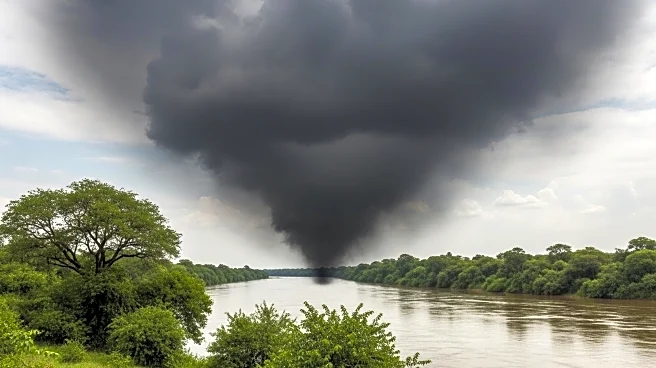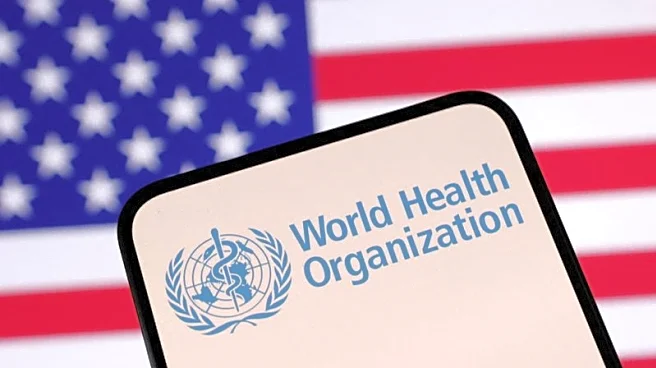What's Happening?
Sino-Metals, a Chinese-owned copper mining and processing company, is facing multiple environmental lawsuits from Zambian communities due to a toxic spill from a tailings dam collapse in February. The spill released toxic waste into water sources used by farming communities along Zambia's copperbelt region. Lawyers representing affected residents and civil society organizations have initiated settlement talks with Sino-Metals, exploring potential out-of-court resolutions. The lawsuits demand significant compensation, including $220 million for relocating affected households and $9.7 billion for a Victims and Environmental Rehabilitation Fund. Additional claims seek $80 billion for environmental remediation and monthly relocation payments. These demands represent unprecedented damages against a mining company for environmental harm.
Why It's Important?
The lawsuits against Sino-Metals highlight the growing demand for corporate accountability in Africa, particularly concerning environmental damage caused by multinational corporations. If successful, these legal actions could set a precedent for holding companies accountable for environmental and human costs of investment. The case underscores the delicate balance Zambia must maintain between enforcing environmental regulations and sustaining economic relations with China, a key partner. The outcome could embolden civil society groups across Africa to pursue more aggressive legal strategies, potentially reshaping corporate accountability and environmental governance in the region.
What's Next?
The outcome of the settlement talks remains uncertain, with the sums sought unlikely to be paid in full. Zambia's courts face challenges in enforcing judgments against powerful foreign firms. However, the case represents a significant legal challenge for Sino-Metals and could influence future litigation strategies in Africa. If communities succeed in court or secure substantial settlements, it may encourage similar legal actions across the continent, potentially leading to more stringent enforcement of environmental laws and regulations.
Beyond the Headlines
The Sino-Metals case could mark a turning point in how African communities address environmental grievances against multinational corporations. It highlights the limitations of domestic legal systems in enforcing judgments and the potential for cross-border litigation as an alternative. The case also reflects broader issues of environmental governance and the need for stronger enforcement mechanisms to protect communities from industrial pollution.











